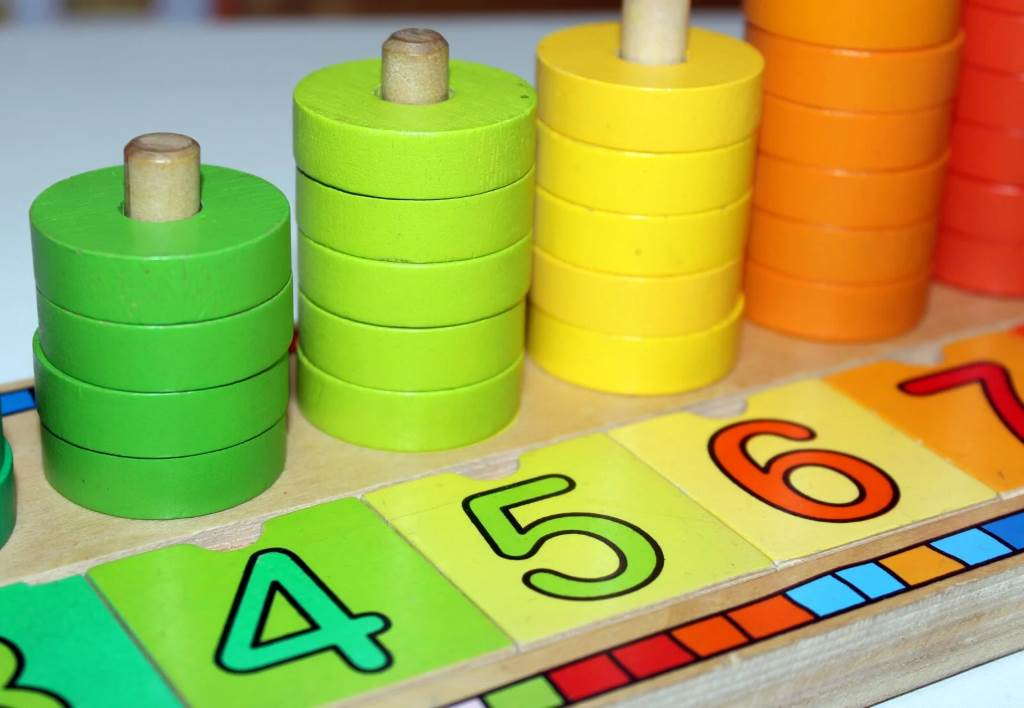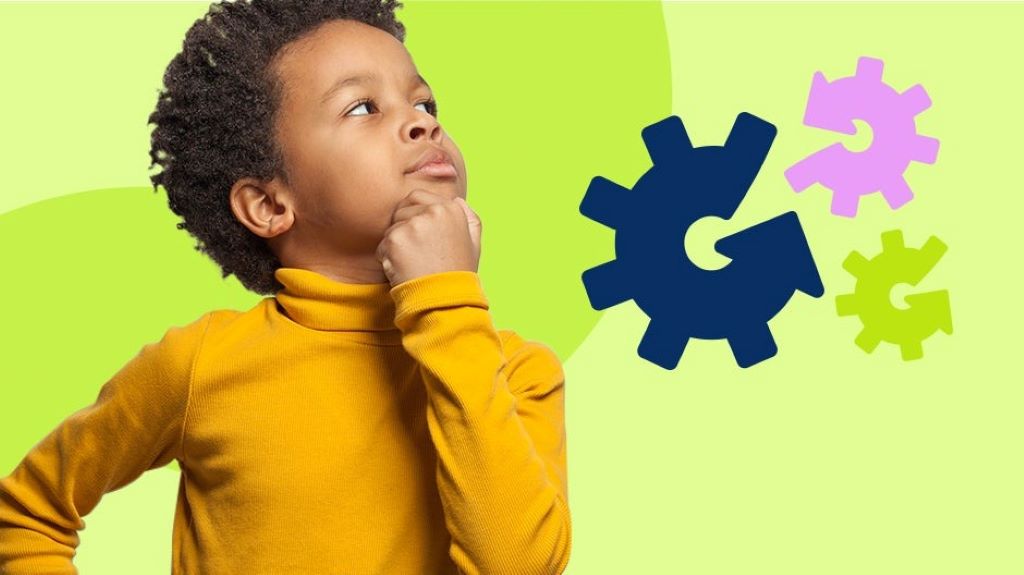The early childhood period, which encompasses the timeframe from birth up to age 8, is characterized by swift cerebral growth and maturation. The quality of experiences and relationships that children encounter during these formative years constitutes the bedrock of their eventual triumphs in academia, employment, and life in general. Have you ever wondered why is early childhood education important? This is why the provision of high-caliber early childhood education holds such paramount importance.
Supporting Brain Growth During a Critical Window
The human brain develops faster in the first 5 years than at any other subsequent period. This makes early childhood a critical window of opportunity to build strong neural connections.

Capitalizing on Sensitive Periods for Development
From birth to age 5, young children go through sensitive periods for visual and language development. During sensitive periods, certain parts of the brain are especially responsive to environmental input. Enriching experiences can have an outsized impact on development. High-quality early childhood programs expose kids to experiences that activate these sensitive periods.
Building a Sturdy Brain Architecture
Early experiences shape the architecture of the developing brain. Neural connections form through patterns of stimulation. Positive early childhood experiences, like interacting with attentive caregivers and engaging in high-quality learning activities, strengthen connections. This builds a sturdy brain architecture that serves as the foundation for future cognitive, social-emotional, and language skills.
Supporting Executive Function
Early childhood is an important period for developing executive function skills like focus, planning, and impulse control. These skills rely on neural connections between the prefrontal cortex and other brain regions. Quality early learning environments give children opportunities to strengthen these connections through games, songs, and structured play.
Fostering Social-Emotional Growth
In early childhood, children undergo incredible social-emotional growth. Their experiences help shape their self-awareness, social competence, and ability to manage emotions.
Learning About Emotions
Young kids learn to identify their emotions and to manage overwhelming feelings like anger, sadness, and fear. This involves developing connections between the amygdala and prefrontal cortex. When kids have supportive caregivers who help them work through difficult emotions, it strengthens these neural pathways. Emotional intelligence skills developed in early childhood benefit kids for life.
Building Social Skills
Early childhood is when kids learn vital social skills like cooperation, kindness, and resolving conflict through language. High-quality pre-schools allow kids to practice these skills by interacting in socially rich environments. Mastering social abilities boosts confidence and prepares kids for positive relationships.
Developing Self-Esteem
From toddlerhood into the grade school years, kids form a sense of identity and self-worth. This relies partly on brain regions like the prefrontal cortex and limbic system connecting. When kids receive affection and encouragement for effort rather than inherent traits, it fosters healthy self-esteem. This serves kids well in navigating all sorts of challenges.

Gaining Crucial Cognitive Skills
The dramatic cognitive development that takes place in early childhood cannot be overstated. Kids pick up language at lightning speed, problem solve using logic, and build academic readiness skills that prepare them for the classroom.
Mastering Oral Language
Oral language blossoms rapidly in the first 5 years as kids learn vocabulary, grammar, and communication skills. Language development relies on neural connectivity between Broca’s and Wernicke’s areas of the brain. Back-and-forth conversations with attentive adults stimulate these areas and build strong language ability.
Learning Early Literacy & Math
Well before formal schooling, young kids develop early “reading” and math skills. This includes alphabet awareness, understanding printed words have meaning, recognizing numbers, and concepts like size/shape and position/direction. These pre-literacy and pre-math skills depend on brain connections forming properly in regions like the parietal and temporal lobes.
Problem Solving & Critical Thinking
During play and structured learning activities, children learn critical thinking as they make predictions, test ideas, recognize patterns, and understand cause-and-effect. Strengthening connections between the prefrontal cortex and other regions supports sharper memory and problem-solving that kids use throughout life.
Encouraging Motor Development
Physical milestones occur rapidly in early childhood as large and small muscle groups gain strength and coordination.
Gross Motor – Sitting, Crawling, Walking
In the first months and years, babies learn to lift their head, roll over, sit up, scoot, crawl, cruise, and walk. These gross motor skills rely on areas of the frontal lobe communicating properly with the motor cortex and cerebellum. Achieving physical milestones on time ensures kids explore their environment to maximize learning.
Fine Motor – Precision Grasp, Writing
Later in early childhood, fine motor skills let kids manipulate smaller objects with precision. Milestones include using a neat pincer grasp, threading beads, scribbling with crayons, and properly holding and using utensils. These abilities aid further cognitive, social-emotional, and artistic development.

Additional Benefits of Early Childhood Education
Alongside nurturing childhood development itself, high-quality early childhood programs also have numerous additional benefits. They can help keep kids on track academically as well as confer benefits that last into adulthood.
Avoiding Academic Problems
Early identification of developmental delays or learning disabilities can help parents and teachers better support students. Kids who get assistance starting in preschool are less likely to fall irreparably behind in elementary school. Early intervention prevents minor issues snowballing into major struggles.
Higher Graduation Rates
Longitudinal research consistently demonstrates that kids who attend high-quality pre-school programs have higher high school graduation rates compared to peers lacking that early education. One study found participants were 20% more likely to graduate than the control group.
Less Crime & Drug Use Later On
Young adults who previously attended high-quality early childhood education programs commit fewer crimes on average and use illegal drugs less often compared to a control group. This is likely because early education helps kids better self-regulate behavior and emotion from a young age.
Healthier Lifestyles
Healthy habits like good nutrition, physical activity, and proper hygiene habits develop early in childhood. Kids who participate in quality ECE programs tend to lead healthier lifestyles consistently from childhood through adulthood. They suffer from fewer chronic health conditions.
Frequently Asked Questions
Why does early childhood education focus so much on play?
Play comes naturally to young children. What may seem like “just fun” actually advances cognitive, physical, social, and emotional skills essential for development. As kids play pretend, build with blocks, or make art projects, they problem solve, develop motor skills, express emotions, and practice decision making. Play is the joy-filled “work” of childhood!
Is preschool necessary for kids these days?
Preschool has shifted from being optional to highly recommended by most childhood experts. The activities and social settings preschools offer build important skills that ready children for kindergarten and beyond. Kids who attend preschool often adjust to elementary school with greater ease and confidence.
What are signs of a high-quality early childhood program?
Small student-to-teacher ratios, safety measures, variety of age-appropriate activities, incorporation of play and academics, and warm/responsive teacher-child interactions indicate quality. The facility should be clean, spacious, and filled with learning materials.
Can early childhood education help kids over the long term?
Yes! Studies tracking pre-school participants 20+ years later consistently reveal lasting benefits. Attendees are more likely to earn higher salaries, rely less on welfare programs, have healthier lifestyles, and avoid legal trouble down the road. Early education pays off!
What early literacy and math skills do young kids need?
Strong oral language, alphabet awareness, understanding print has meaning, enjoying books, singing songs with rhythm and rhyme all build early literacy. Basic counting, number recognition, comparing quantities, sorting by traits like size or color develops early numeracy. These pave the way for reading and math competence.
In Conclusion
Early childhood marks a time of incredible growth that lays the foundation for children’s future development. Getting kids off to a strong start with nurturing environments and research-backed early education programs pays untold dividends over their lifetime. Encouraging your child to study not only fosters academic growth but also equips them with social-emotional coping strategies, empowering them to reach their full potential; it’s a crucial investment in their future well-being, aligned with the wisdom of prioritizing quality early childhood education for lasting human flourishing.








